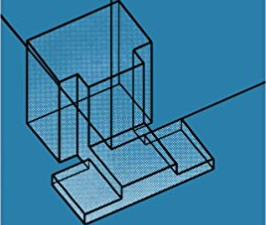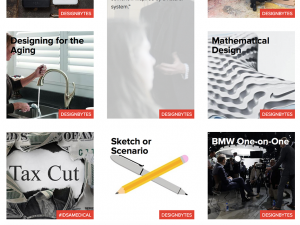A blog about design at the OU.
-

Farewell Trevor Baylis -Inventor, Designer and Engineer
-

On Lionel March and abduction
Design at the Open University, has a history that brings together different research traditions and thematic areas. One of those research traditions is focussed on mathematical and computational studies of design and can be traced back to Lionel March who was appointed Design Chair at the OU in 1976 and founded the Centre for Configurational…
-

Design thinking to support underserved communities in the North-East of Mexico
Juan Manuel Fernández Cárdenas and Christina Reynaga-Peña from TEC de Monterrey in Mexico organised a week-long workshop on ‘Reducing marginalisation and promoting inclusive education with the mediation of digital technology’ in February 2018. Here is a summary of the workshop. Over 80 participants, including teachers, teacher trainees, researchers, governmental and non-governmental organisations from the North-East of Mexico,…
-

The Leaning Chimneys of Stewartby
Back in the 1930s, the London Brick Company established the largest brickworks in the world across Bedfordshire. Over 2,000 people were employed here at this time. A rich source of clay had been found in the place John Bunyan called the ‘Slough of Despond’ in ‘The Pilgrim’s Progress’. At the peak of the brickworks, there…
-

Design Museum: what is a good design?
We did a little experiment. What if we organise a visit to the Design Museum (on a grey and rainy February weekend) and everyone from the Design and Innovation Qualification at the OU is invited to come. Who would come and join us? Twenty-five students, 2 tutors and 4 central academics from across the qualification…
-

Design Bytes
The Industrial Designers Society OF America IDSA has thousands of members and runs design conferences and competitions. It also maintains a website with a large repository of design stories and materials as well as links to external materials on design from interviews with famous designers to new manufacturing methods. Its DesignBytes pages give a great impression of the…
-

Designing successful consumer products
I have always been interested in design, and as a child I was fascinated by the old washing machines, cookers and lamps in London’s Science Museum. As a teenager I wanted to be an architect, but decided to do engineering, which spanned my interests in design and science. This led me to study mechanical engineering…
-

Reflecting on a hundred years of engineering design education
I have always known that my grandfather Thomas Clinch was a railway engineer, but I was only recently given some reports from his engineering degree at Imperial College (1921 – 1923). The first thing I noticed about the reports is how beautifully presented they were – everything written in longhand script, with accurate hand-drawn figures…
-

Will a robot take your (design) job?
As designers, happily embedded in the creative industries, we may feel that our jobs are safe from the looming automation that artificial intelligence (AI) and robots will bring to the job market. For example, explore the BBC’s tool for predicting the likelihood that a robot could take your job, and you will find that design…
